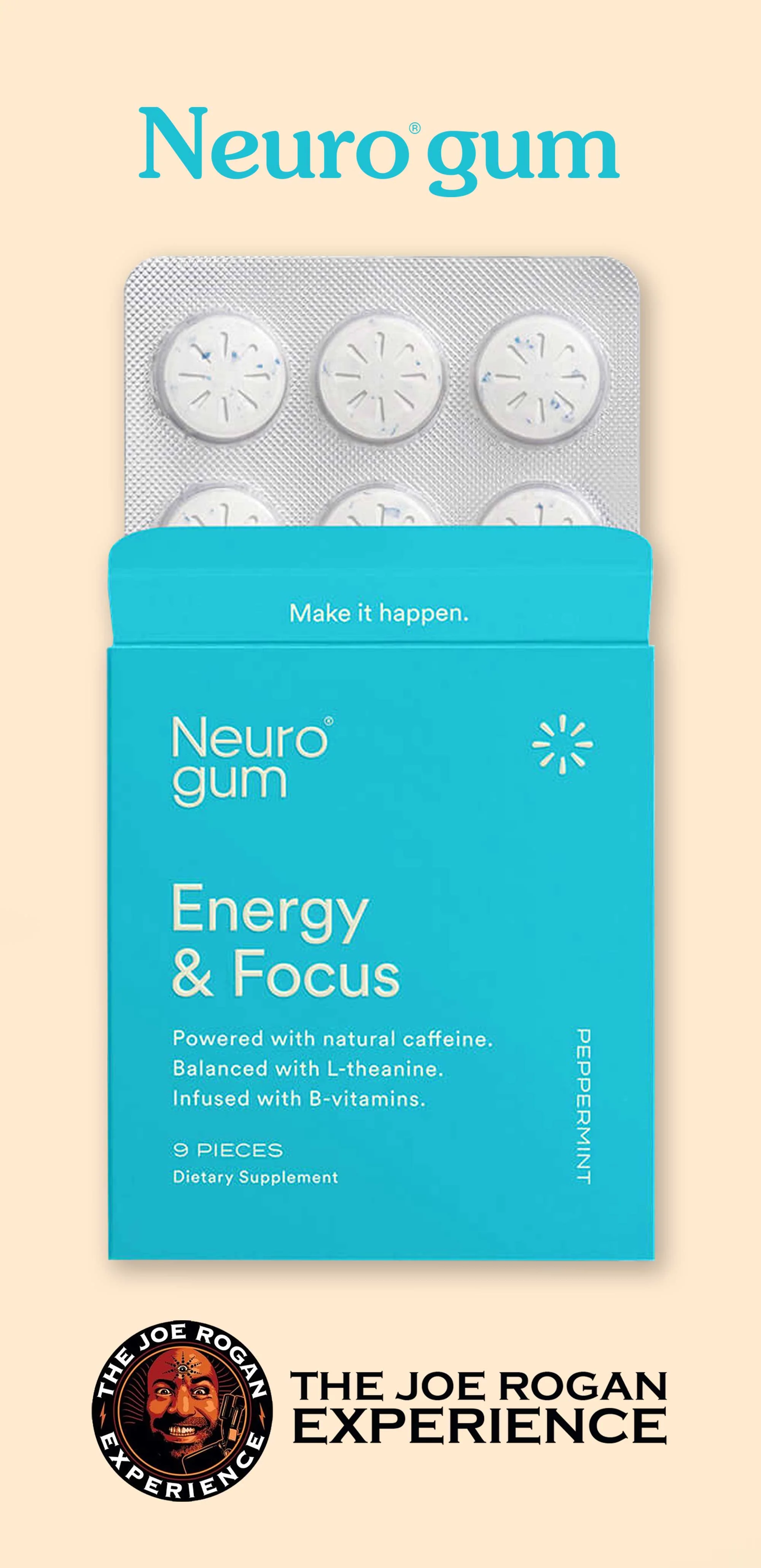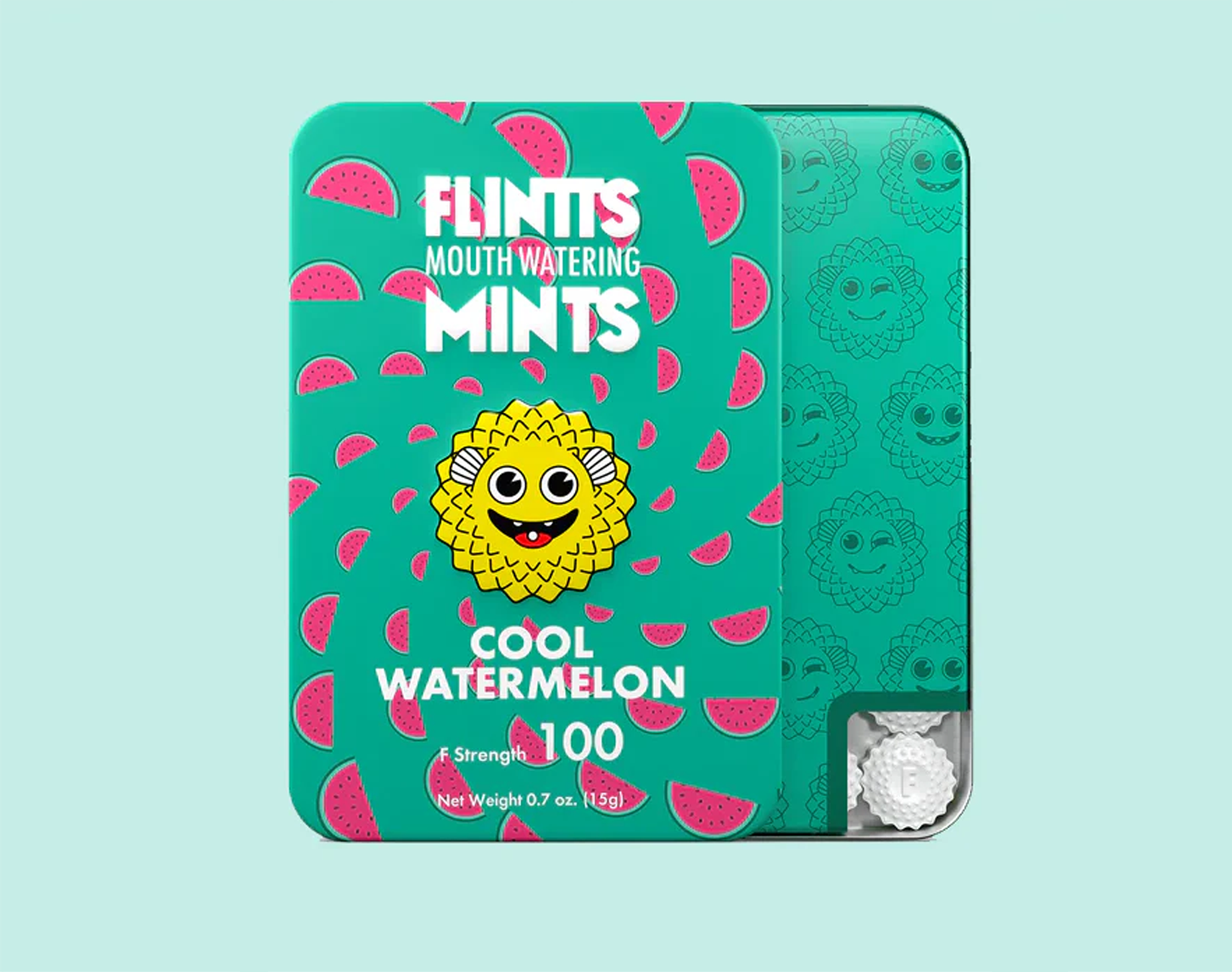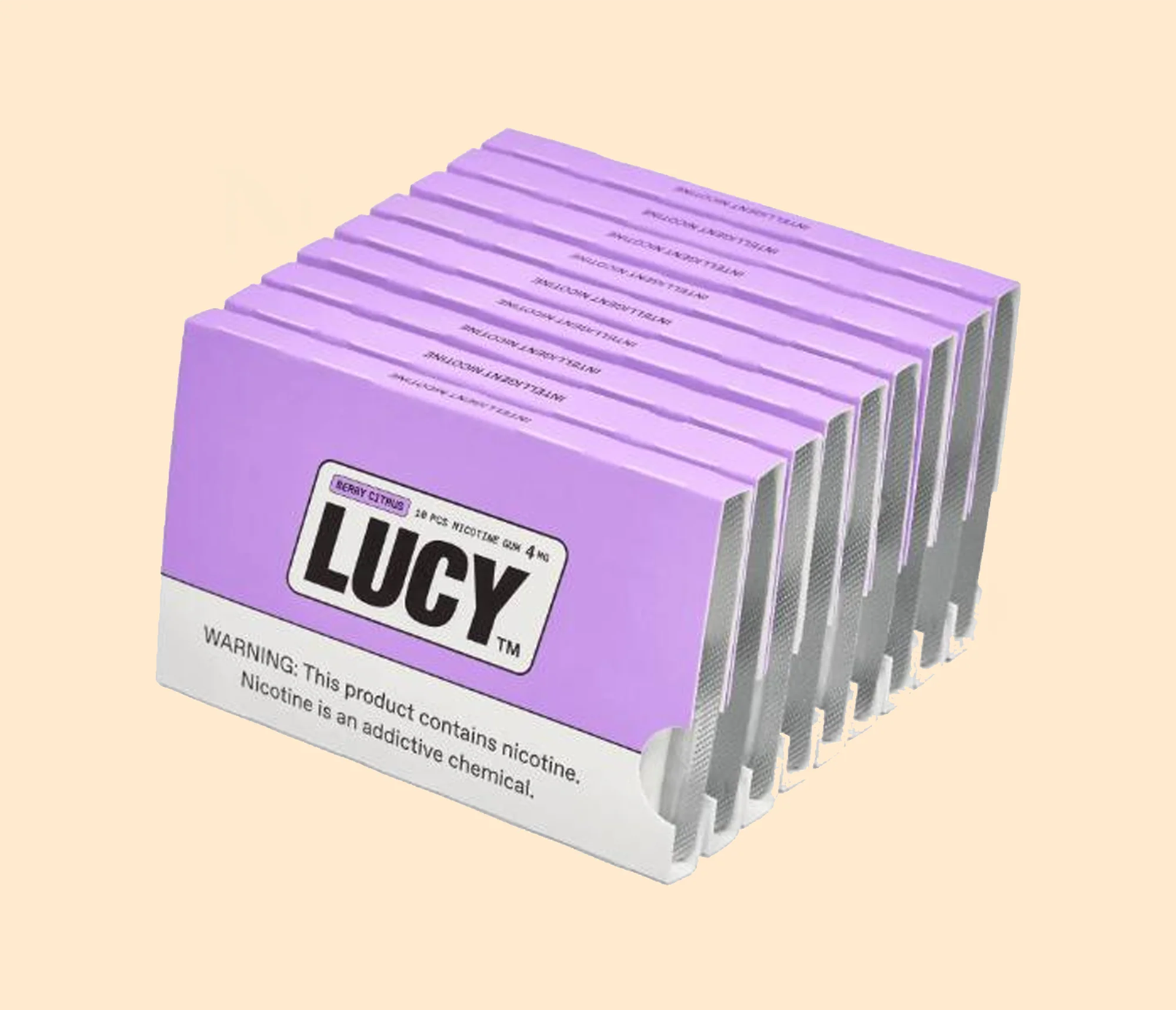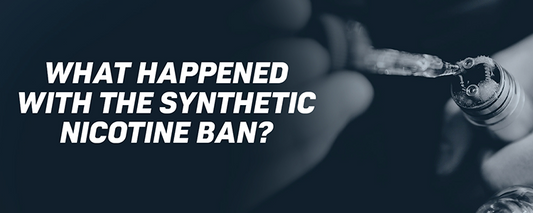Calendar
BLOGS
What is the Synthetic Nicotine Ban?
This past month, the United States government passed the synthetic nicotine ban as part of the 2022 Omnibus Spending Bill. This law allows vaping companies using synthetic nicotine in their products to be regulated by the U.S. Food and Drug Administration.
Now that the bill has passed, it will have large implications for vaping manufacturers, retailers, and distributors. Read this article to learn more about how this bill might affect your business and information on the FDA's requirements.
How Did the Synthetic Nicotine Ban Come to Be?
In January of 2020, the U.S. Food and Drug Administration issued a policy that banned the sale of flavored cartridge-based nicotine pods. Companies were given 30 days to stop manufacturing, distributing, and selling unauthorized flavored cartridges. It focused on prohibiting flavored cartridge-based nicotine pods that appealed to teenage users to hinder the epidemic of youth vaping.
Many vaping businesses began to shut down as they couldn't sell their tobacco-based products on the market no longer. Companies were rebranding, such as Juul, or they were finding innovative ways to stay in the vaping industry, like Puff Bar. Puff Bar found a loophole in this policy that pivoted the rise of synthetic nicotine.
The policy banned the sale of tobacco-based pods, but not products made in a lab that contains nicotine. Puff Bar and other companies claimed that these new products did not contain tobacco as it was made with artificial nicotine. For the past two years, brands created disposable vaping devices that used non-tobacco nicotine.
Sales have been increasing for companies as many smokers love the endless fruity options of flavored vaping products. Despite efforts to prohibit sales from teenagers, vapes are getting into the hands of the youth. Pressure from anti-tobacco groups has sparked the government to close this loophole, hence the de facto synthetic nicotine ban.
What is the Synthetic Nicotine Ban?
The synthetic nicotine ban is part of Biden's 2022 Omnibus Appropriation Act that went into effect on April 14, 2022. Although it is a spending bill, the ban was possible due to an addition of a rider. A rider on a government bill is an added provision or language change that has little connection with the subject. Essentially, it is a way for a legislature to pass controversial provisions that would not pass as a bill on its own.
Lawmakers changed the language of the 2009 Tobacco Control Act and added the term "or containing nicotine from any source" meaning chemically derived nicotine. Any product, including nicotine pouches, lozenges, and vapes, is now controlled by the United States government. This closed the loophole that many companies are using to create and sell synthetic tobacco products. Now, companies are forced to follow the same federal restrictions and requirements as tobacco products.
Once Biden signed the law, manufacturers, retailers, and distributors have 30 days to submit an application, a PMTA, to the FDA. Those who submit applications must get authorization from the FDA within 60 days. If not, the FDA will prohibit tobacco sales of that product on the market. Those who do not comply with the new regulations will be subject to enforcement by the FDA.
Similar to the previous ban pushed by anti-tobacco advocates, the main goal of this law is to combat the rising epidemic of vaping amongst the youth. To do this, the ban will eliminate fruit-flavored synthetic tobacco-derived nicotine products that are not FDA approved to be sold or advertised. Its objective is to stop the appeal of fruit flavors, making vapes less desirable to teenagers. Now, the FDA can regulate all products derived from tobacco plants or made in a lab to the same standards set for all tobacco products.
What are Businesses Required to Complete?
The synthetic nicotine ban will affect many companies and consumers because many flavored nicotine vapes will be prohibited to sell if they are not approved by the FDA. Since all nicotine and synthetic nicotine products will be under the jurisdiction of the U.S. Food and Drug Administration, there will be additional rules and regulations businesses will have to follow.
The first major obligation that comes with the new ban is that all manufacturers, distributors, importers, and retailers of tobacco products, including synthetic nicotine, must comply with the Federal Food, Drug, and Cosmetic Act. The FD&C Act initially gave the FDA authority to control the safety of food, drugs, medical devices, and cosmetics. The FDA is now requiring three main requirements for vape businesses.
-One cannot sell these types of products, non-tobacco nicotine, to people under 21 either in-person or online.
-One cannot market these products as modified risk tobacco products without the authorization of the FDA.
-One cannot distribute free samples of these products.
Additionally, the FDA is requiring owners and operators of NTN products to register with the FDA and list all tobacco products manufactured, prepared, compounded, or processed for commercial distribution. More information on this condition can be found on the FDA's website.
Lastly, manufacturers of tobacco and NTN products must submit a Premarket Application (PMTA) for any new tobacco product that wants an FDA marketing order. The PMTA will require scientific data to ultimately decide if a product is safe for the public's health. To reach a conclusion, the FDA will evaluate the risks, benefits, usage, and influence of a product on the smoking and non-smoking population.
The deadline for tobacco companies to submit a PMTA for existing synthetic nicotine products is May 14, 2022. If one is submitting or mailing a hard copy, it must be received by the FDA no later than 4:00 p.m. EDT on Friday, May 13, 2022. All new products will need to submit a PMTA. If a manufacturer has already received a Marketing Denial Order (MDO) from the FDA on a previous application, they cannot submit a new PMTA.
Once all applications are submitted, applicants must receive authorization from the FDA within 60 days. If authorization is not given, all synthetic nicotine merchandise must be removed from the market or will be subjected to enforcement from the FDA. For more information regarding PMTA and the process, visit the FDA's website.
What is the Synthetic Nicotine Ban?
This past month, the United States government passed the synthetic nicotine ban as part of the 2022 Omnibus Spending Bill. This law allows vaping companies using synthetic nicotine in their products to be regulated by the U.S. Food and Drug Administration.
Now that the bill has passed, it will have large implications for vaping manufacturers, retailers, and distributors. Read this article to learn more about how this bill might affect your business and information on the FDA's requirements.
How Did the Synthetic Nicotine Ban Come to Be?
In January of 2020, the U.S. Food and Drug Administration issued a policy that banned the sale of flavored cartridge-based nicotine pods. Companies were given 30 days to stop manufacturing, distributing, and selling unauthorized flavored cartridges. It focused on prohibiting flavored cartridge-based nicotine pods that appealed to teenage users to hinder the epidemic of youth vaping.
Many vaping businesses began to shut down as they couldn't sell their tobacco-based products on the market no longer. Companies were rebranding, such as Juul, or they were finding innovative ways to stay in the vaping industry, like Puff Bar. Puff Bar found a loophole in this policy that pivoted the rise of synthetic nicotine.
The policy banned the sale of tobacco-based pods, but not products made in a lab that contains nicotine. Puff Bar and other companies claimed that these new products did not contain tobacco as it was made with artificial nicotine. For the past two years, brands created disposable vaping devices that used non-tobacco nicotine.
Sales have been increasing for companies as many smokers love the endless fruity options of flavored vaping products. Despite efforts to prohibit sales from teenagers, vapes are getting into the hands of the youth. Pressure from anti-tobacco groups has sparked the government to close this loophole, hence the de facto synthetic nicotine ban.
What is the Synthetic Nicotine Ban?
The synthetic nicotine ban is part of Biden's 2022 Omnibus Appropriation Act that went into effect on April 14, 2022. Although it is a spending bill, the ban was possible due to an addition of a rider. A rider on a government bill is an added provision or language change that has little connection with the subject. Essentially, it is a way for a legislature to pass controversial provisions that would not pass as a bill on its own.
Lawmakers changed the language of the 2009 Tobacco Control Act and added the term "or containing nicotine from any source" meaning chemically derived nicotine. Any product, including nicotine pouches, lozenges, and vapes, is now controlled by the United States government. This closed the loophole that many companies are using to create and sell synthetic tobacco products. Now, companies are forced to follow the same federal restrictions and requirements as tobacco products.
Once Biden signed the law, manufacturers, retailers, and distributors have 30 days to submit an application, a PMTA, to the FDA. Those who submit applications must get authorization from the FDA within 60 days. If not, the FDA will prohibit tobacco sales of that product on the market. Those who do not comply with the new regulations will be subject to enforcement by the FDA.
Similar to the previous ban pushed by anti-tobacco advocates, the main goal of this law is to combat the rising epidemic of vaping amongst the youth. To do this, the ban will eliminate fruit-flavored synthetic tobacco-derived nicotine products that are not FDA approved to be sold or advertised. Its objective is to stop the appeal of fruit flavors, making vapes less desirable to teenagers. Now, the FDA can regulate all products derived from tobacco plants or made in a lab to the same standards set for all tobacco products.
What are Businesses Required to Complete?
The synthetic nicotine ban will affect many companies and consumers because many flavored nicotine vapes will be prohibited to sell if they are not approved by the FDA. Since all nicotine and synthetic nicotine products will be under the jurisdiction of the U.S. Food and Drug Administration, there will be additional rules and regulations businesses will have to follow.
The first major obligation that comes with the new ban is that all manufacturers, distributors, importers, and retailers of tobacco products, including synthetic nicotine, must comply with the Federal Food, Drug, and Cosmetic Act. The FD&C Act initially gave the FDA authority to control the safety of food, drugs, medical devices, and cosmetics. The FDA is now requiring three main requirements for vape businesses.
-One cannot sell these types of products, non-tobacco nicotine, to people under 21 either in-person or online.
-One cannot market these products as modified risk tobacco products without the authorization of the FDA.
-One cannot distribute free samples of these products.
Additionally, the FDA is requiring owners and operators of NTN products to register with the FDA and list all tobacco products manufactured, prepared, compounded, or processed for commercial distribution. More information on this condition can be found on the FDA's website.
Lastly, manufacturers of tobacco and NTN products must submit a Premarket Application (PMTA) for any new tobacco product that wants an FDA marketing order. The PMTA will require scientific data to ultimately decide if a product is safe for the public's health. To reach a conclusion, the FDA will evaluate the risks, benefits, usage, and influence of a product on the smoking and non-smoking population.
The deadline for tobacco companies to submit a PMTA for existing synthetic nicotine products is May 14, 2022. If one is submitting or mailing a hard copy, it must be received by the FDA no later than 4:00 p.m. EDT on Friday, May 13, 2022. All new products will need to submit a PMTA. If a manufacturer has already received a Marketing Denial Order (MDO) from the FDA on a previous application, they cannot submit a new PMTA.
Once all applications are submitted, applicants must receive authorization from the FDA within 60 days. If authorization is not given, all synthetic nicotine merchandise must be removed from the market or will be subjected to enforcement from the FDA. For more information regarding PMTA and the process, visit the FDA's website.







